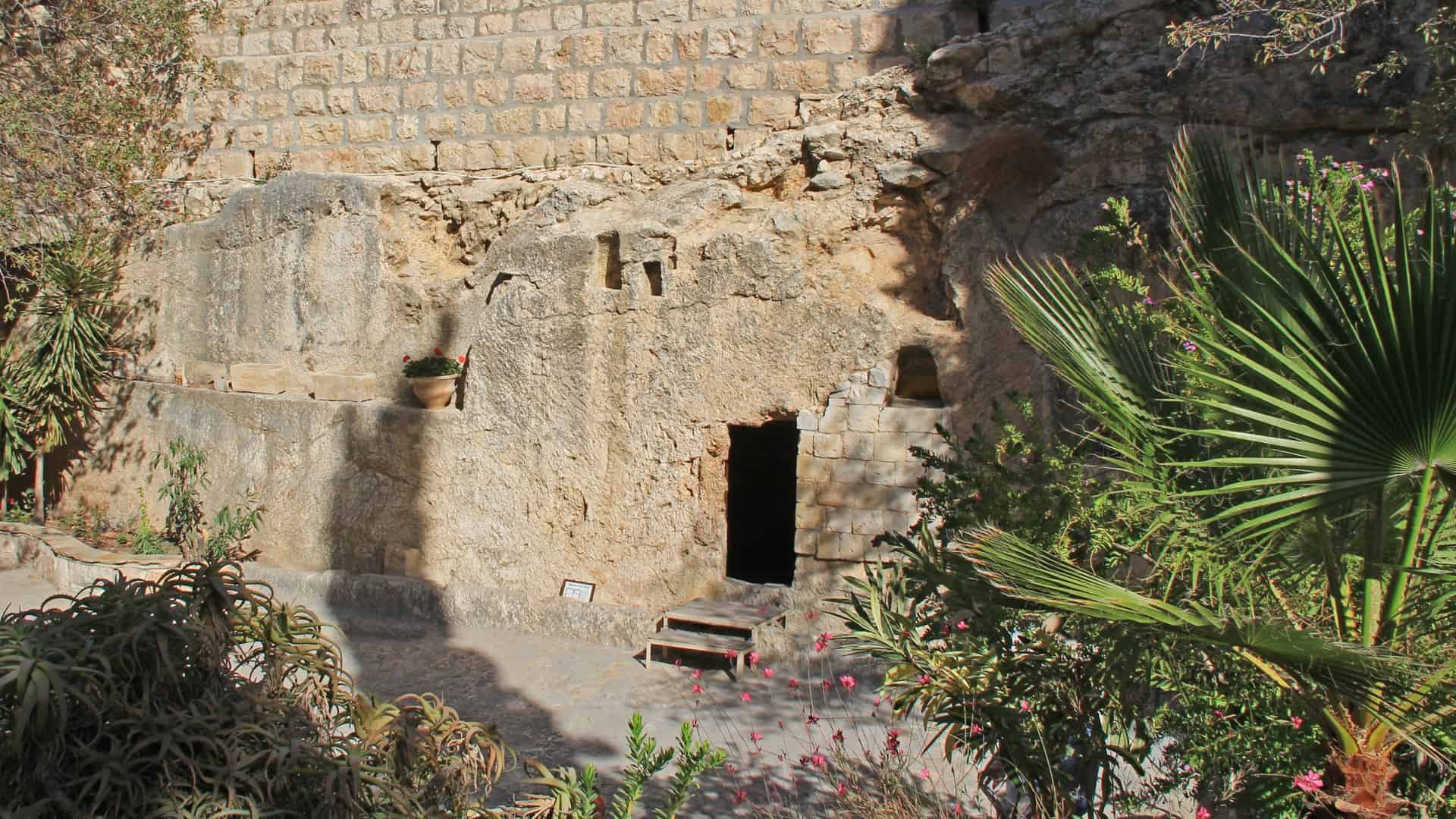What Happened at Easter? (2 Timothy 1:8-14)

Big Idea: What happened at Easter? God revealed his eternal plan. Jesus knocked out death, and he shone the spotlight on immortality.
If I were to ask you, “What happened at Easter?” there would be two ways to answer.
The first way to answer would be factual. What events happened at the first Easter two thousand years ago? For that we could look at the four gospels or at 1 Corinthians 15 for a summary:
For I delivered to you as of first importance what I also received: that Christ died for our sins in accordance with the Scriptures, that he was buried, that he was raised on the third day in accordance with the Scriptures, and that he appeared to Cephas, then to the twelve. Then he appeared to more than five hundred brothers at one time, most of whom are still alive, though some have fallen asleep. Then he appeared to James, then to all the apostles. Last of all, as to one untimely born, he appeared also to me. (1 Corinthians 15:3-8)
That would be a good way of answering the question, “What happened at Easter?” It deals with the facts, and the facts are important. That’s why the Bible spends so much time talking about the facts of Easter.
But there’s answer the question, “What happened at Easter?” And it’s to look not just at the facts but at the meaning. And that’s what I want to do today.
I can’t think of too many passages that explain the meaning of what happened at Easter more than 2 Timothy 1:9-10:
…who saved us and called us to a holy calling, not because of our works but because of his own purpose and grace, which he gave us in Christ Jesus before the ages began, and which now has been manifested through the appearing of our Savior Christ Jesus, who abolished death and brought life and immortality to light through the gospel…
What happened at Easter? Three things.
One: God Revealed His Eternal Plan
Read verse 9 again:
…who saved us and called us to a holy calling, not because of our works but because of his own purpose and grace, which he gave us in Christ Jesus before the ages began… (2 Timothy 1:9)
Here we learn that the events of Easter did not begin to unfold in April in the year 33 A.D. If you were to trace Easter back to its source, you would have to look beyond the beginning of time itself to eternity. Paul says that God gave us his purpose and grace “before the ages began.” That means that God began to plan his eternal purpose before time and before the world began. That’s how far God’s plan went back. Before a single atom existed, before God created the heavens and the earth, before the oceans and land and sun, God had already planned to give us his purpose and grace. This was all part of God’s plan right back into eternity.
Once in a while we get a sense of how small we are compared to the magnitude of what’s out there. I know that I feel this way when I consider the size of the earth compared to the size of the galaxies and universes that exist. I also feel this way when I think of our location in time: that we occupy a small moment in time. But then I see this passage and realize that we’re part of something even bigger than time and space. Before either of those even existed, God had already planned to give us his purpose and grace. God thought of all of this, and of you, before time even existed.
Paul says in verse 10, “and which now has been manifested through the appearing of our Savior Christ Jesus…” We now know God’s eternal plan because he’s revealed it through the appearing of Jesus. What God had planned privately and in eternity, Jesus has now revealed to us.
I can think of two ways that I want to respond when I think about this.
I feel very reassured. We all should. There’s nothing we can do to mess it up. We’re not powerful enough to mess up God’s eternal plan. Our safety doesn’t depend on us but on God’s eternal plan. That is very reassuring. If all of this began before the world even existed, who are we to think that God won’t see things through? Look at verse 12: “But I am not ashamed, for I know whom I have believed, and I am convinced that he is able to guard until that day what has been entrusted to me” (2 Timothy 1:12). We should feel very reassured.
But I also feel very grateful and humbled. Paul says that God did this all not because of our works, but simply because of his own purpose and grace. We contributed nothing to our salvation. We have no reason to boast or feel superior to anyone else. But we can feel grateful that, simply by his grace, God has chosen to save us and call us to himself.
What happened at Easter? God revealed his eternal plan. The events of Easter go back before the creation of this world and reveal God’s eternal plan to save us by sheer grace. That’s the first thing that happened at Easter.
But there are two more things that happened at Easter.
Two: Christ Knocked Out Death
Verse 10 says, “…and which now has been manifested through the appearing of our Savior Christ Jesus, who abolished death.”
I hear a lot of bad ideas about death. Some people talk about death like it’s not really a problem. In The Lion King, Simba’s father says, “You see, it’s all part of the circle of life. There’s nothing unusual about death. It’s just the next step of growth. It’s just the next stage of life.”
In 1910, King Edward VII of England caught a cold, developed bronchitis, then pneumonia, and was dead within a week. His funeral was preached by Henry Scott-Holland, the canon of St. Paul’s Cathedral, who uttered these words: “Death is nothing at all. I have only slipped away into the next room … Life means all that it ever meant. It is the same as it ever was.”
I want to tell you that this is not the biblical teaching on death. Death is a problem for us. In fact, death is our biggest problem. Just hang around a hospital or funeral home long enough and you will be confronted by the ugliness of death. It’s not the way it’s supposed to be.
The Bible teaches that death is not natural to us. Death came as a result of sin.
On Good Friday two thousand years ago, Jesus faced death and conquered it. Hebrews 2:14-15 tells us:
Since therefore the children share in flesh and blood, he himself likewise partook of the same things, that through death he might destroy the one who has the power of death, that is, the devil, and deliver all those who through fear of death were subject to lifelong slavery.
When rose from the dead, he showed that he had defeated death. That’s why Paul can say in this passage that he abolished death. When Jesus rose from the dead, he delivered a knock-out punch to death. We no longer have to fear death.
What does the word “abolish” mean? It means to render inoperative. It doesn’t mean that there is no more death. Obviously there is. It means that death is now powerless. It’s now lost its sting. We don’t need to fear it anymore.
For the believer, death is simply falling asleep in Christ. Paul could say that it’s better, because it’s the gateway to being with Christ (Philippians 1:21, 23). Jesus could say that the believer, though he dies, shall never die (John 11:25-26). Paul could say elsewhere that death will never separate us from the love of God that is in Jesus Christ (Romans 8:38, 39).
Jesus’ resurrection is a pattern for our own future resurrection (1 Corinthians 15:20). 1 Corinthians 6:14 says, “And God raised the Lord and will also raise us up by his power.”
When Jesus rose from the dead, death died. If you have trusted in Jesus, you no longer have to fear death. You have the resurrection and eternal life to look forward to. Death has been defeated, and one day it will be completely gone.
You know what’s amazing about this passage? It’s written by someone who was facing death himself. Any day he expected to receive the death sentence. And yet because of Easter he could face death, knowing that death has been defeated.
What happened at Easter? One: God revealed his eternal plan. Two: Christ knocked out death. If that wasn’t good enough, there’s one more thing that happened at Easter:
Three: Jesus Shone the Light on Immortality
Abolishing death is the negative side. It’s what he got rid of. Now is the positive side. He “abolished death and brought life and immortality to light through the gospel” (2 Timothy 1:10).
Here’s what happened on Easter morning: Jesus took a floodlight and illuminated life and immortality. This begins now in the future but now, with lots more to come.
If you think that immortality is boring, you probably have an inaccurate view of what it’s like. Wayne Grudem writes:
In the new heavens and new earth, there will be a place and activities for our resurrection bodies, which will never grow old or become weak or ill … Though all these things have been marred and distorted by sin, God will not completely destroy the physical world (which would be an acknowledgement that sin had frustrated and defeated God’s purposes), but rather he will perfect the entire creation and bring it into harmony with the purposes for which he originally created it. Therefore we can expect that in the new heavens and new earth there will be a fully perfect earth that is once again “very good.” And we can expect that we will have physical bodies that will once again be “very good” in God’s sight, and that will function to fulfill the purposes for which he originally placed man on the earth.
…it should not strike us as surprising to find that some of the descriptions of life in heaven include features that are very much part of the physical or material creation that God has made. We shall eat and drink at “the marriage supper of the Lamb” (Rev. 19:9). Jesus will once again drink wine with his disciples in the heavenly kingdom (Luke 22:18). The “river of the water of life” will flow “from the throne of God and of the Lamb through the middle of the street of the city” (Rev. 22:1). The tree of life will bear “twelve kinds of fruit, yielding its fruit each month” (Rev. 22:2). There is no strong reason to say these expressions are merely symbolic … These things are just some of the excellent features of the perfection and final goodness of the physical creation that God has made.
I can’t wait.
What happened at Easter? I can tell you about the events: Jesus rose from the dead, and many eyewitnesses saw him. And I can tell you about the meaning. God revealed his eternal plan. Jesus knocked out death, and he shone the spotlight on immortality.
That’s what gave Paul confidence to suffer. That’s what gave him confidence in his future. That’s what made him live for Jesus. And that’s what’s available to all who trust in what Jesus did for them at Easter.





